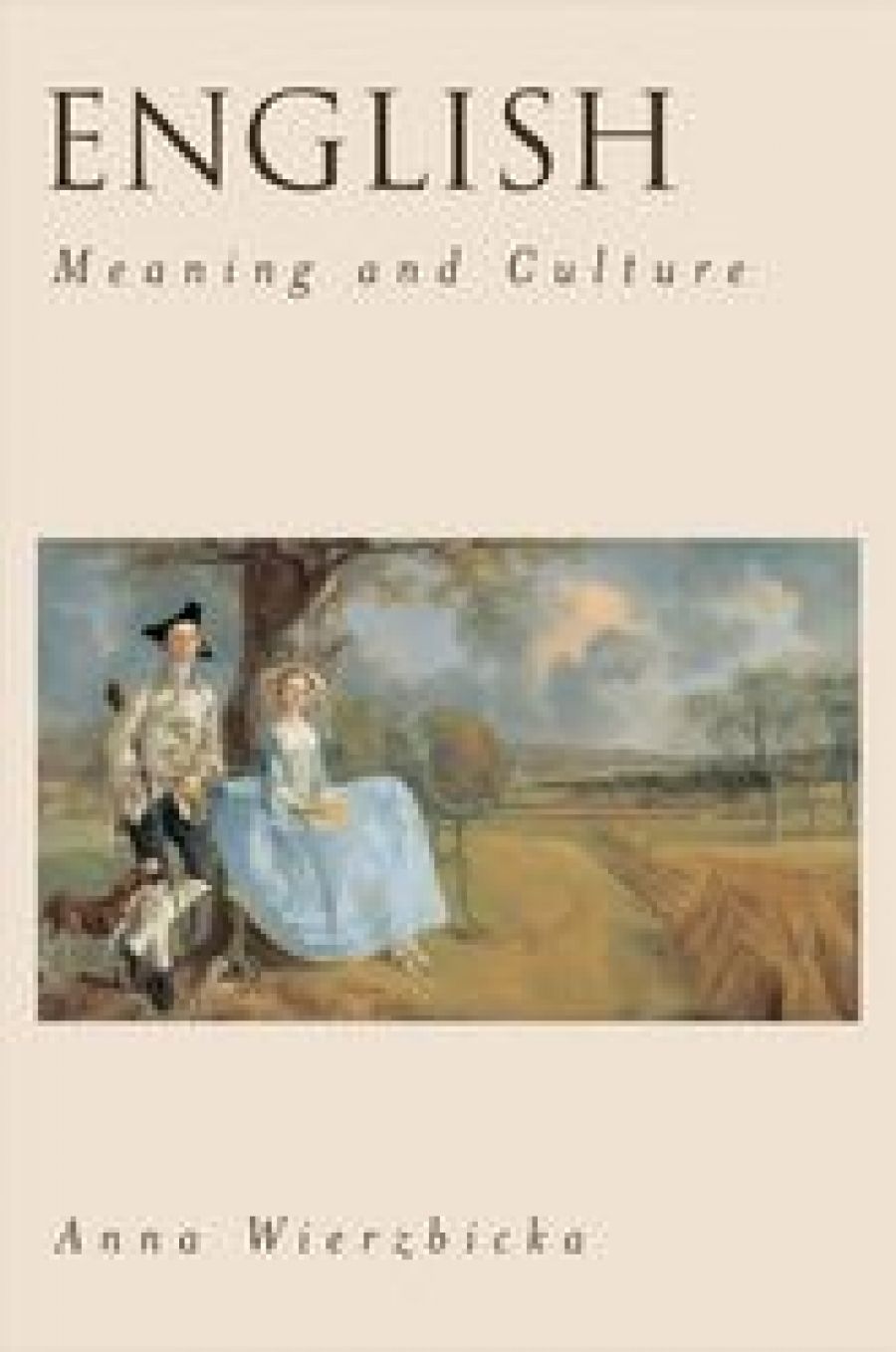
- Free Article: No
- Contents Category: Language
- Review Article: Yes
- Online Only: No
- Custom Highlight Text:
At the heart of Anna Wierzbicka’s book is the argument that what people now call World English is not culturally neutral; that it has embedded in it the Anglo values of its origin. Wierzbicka points to many seemingly ordinary English words, words that we would never suspect of being culturally distinctive, that have no equivalents in other languages. Anglo speakers will be surprised to discover that the values these seemingly commonplace words carry are not universals. Good and bad are universals, but right and wrong are not; the concept of fairness is Anglo, and most other languages do not have words that correspond to fair, fairness and unfair. Even at the level of verbal phrases such as I think, I guess and I believe, and in English’s proliferation of adverbs such as probably, possibly, apparently and conceivably, English differs from all other languages.
- Book 1 Title: English
- Book 1 Subtitle: Meaning and culture
- Book 1 Biblio: OUP, $55 pb, 352 pp
- Book 1 Cover Small (400 x 600):

- Book 1 Cover (800 x 1200):

Wierzbicka argues that such features of English were the product of the seventeenth- and eighteenth-century thinkers of the British Enlightenment, especially John Locke in works such as the Essay Concerning Human Nature (1690). To the British Enlightenment, reason was not the ‘pure reason’ of Descartes. Rather, it was ‘a reason focused on empirical reality, on “facts”, on “common sense”, and on probabilistic thinking, not expecting absolute certainty in anything’. The values that flow from this philosophy are central Anglo values, and they permeate its vocabulary, and even its grammar and syntax.
A book from an internationally acclaimed semanticist, who at times uses a theory of semantic primitives in her analysis, might seem geared to an audience of linguists. But this important book deserves a much wider audience, such as readers interested in cross-cultural matters or in the intersections of philosophy and linguistics, and especially those involved in the teaching of English to migrants.


Comments powered by CComment